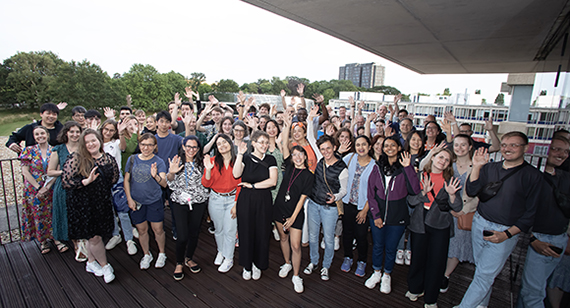Please note: This course will be delivered in person at the Colchester campus. Online study is not available for this course.

Dr. Katy Wheeler is a Senior Lecturer in Sociology at the University of Essex. She is the co-author of How to Do Qualitative Interviewing (SAGE, 2022) and a regular contributor and reviewer for SAGE Research Methods. Katy specialises in qualitative research methods, with particular expertise in interviewing, qualitative data analysis, and the use of Computer-Assisted Qualitative Data Analysis Software (CAQDAS). She has delivered numerous training courses on CAQDAS and qualitative interviewing for academic and practitioner audiences. Her recent work explores the implications of Generative AI for qualitative analysis, encouraging greater technological reflexivity in research practice. Beyond methodology, her research interests include sustainability, consumption, and education, and she has published widely in leading journals and in two monographs: Fair-Trade and the Citizen-Consumer: Shopping for Justice (Palgrave, 2012) and Recycling and Consumption Work: Social and Moral Economies (Palgrave, 2015).

Dr. Bethany Morgan-Brett is a Research Fellow for My Home Life England at City, University of London. Her role involves applying for research and evaluation funding, building a rich research network, project design and management, and conducting high-quality research. Her academic background includes 17 years’ experience of lecturing in Psychosocial and Psychoanalytic Studies, Sociology, and Social Psychology. She is a senior fellow of the Higher Education Academy. Her research expertise lies in the experiences of ageing, human development, social care, therapeutic communication, end of life care, mental health, and grief, loss and bereavement. She worked at the UK Data Archive for nine years (2005-2014), developing expertise in archiving, digitisation, research ethics, data reuse, and research data management. She is highly experienced in social care research ethics, particularly the ethics of researching at risk populations and on sensitive research topics. She is also a registered child and adolescent psychodynamic psychotherapist accredited by The British Psychotherapy Foundation. She has published extensively including the monograph The Child-Parent Caregiving Relationship in Later Life: Psychosocial Experiences (Policy Press, 2023) and co-authored a methods textbook How to Do Qualitative Interviewing (SAGE, 2022) with Dr Katy Wheeler.
Course Content
This intensive one-week course aims to introduce participants to the most widely used qualitative research technique in the social sciences – the interview. The course is intended to systematically guide participants through the research process specific to a qualitative interview project, from research design through to conducting interviews, analysing them and writing up the findings. The course will focus on different types of qualitative interview – including in-depth interviews, psycho-social/sensitive interviews and expert interviews. We reflect on the different techniques at an interviewer’s disposal to encourage participants to share their stories and reflexively discuss how interactions between interviewer and interviewee shape the data that is generated. This is a practical course and participants will gain first-hand experience of conducting and analysing qualitative interviews of different types, as well as critically reflecting upon their own interviewing practice (assumptions and techniques). There will be space for participants to bring their questions about interviews to the course for group discussion.
The course begins with an overview of the key principles and theoretical assumptions underlying the qualitative interview before moving onto the practicalities of setting up an interview research project. Participants are asked to collectively devise an interview guide, test out this guide and then conduct an in-depth interview with another summer school participant. Specific techniques/tools for approaching sensitive topics and dealing with elite interviewees are then considered. Psychosocial interviews are introduced as a special category of qualitative interview and participants can experience this approach through practical exercises. Using the qualitative data analysis software MAXQDA, we introduce techniques for analysing interview data before we conclude the course with top tips on writing up interview research.
Course Objectives
The aim of this course is to equip participants with the skills and confidence to conduct their own research projects using qualitative interviews. The course is introductory so it is well-suited for participants who are at the beginning of their research, but it will also appeal to those who are already using qualitative interviews and are seeking to deepen their knowledge and skills (perhaps in terms of how to ask the right questions and deal with difficult or sensitive topics/participants). By the end of the course, participants should understand the principles behind and practicalities of doing a research project based on qualitative interviews.
Course Prerequisites
No prior knowledge or experience of qualitative interviewing is assumed.
Required text – this text will be provided by ESS:
- Morgan Brett, B & Wheeler, K (2022) How to do Qualitative Interviewing, London: Sage


